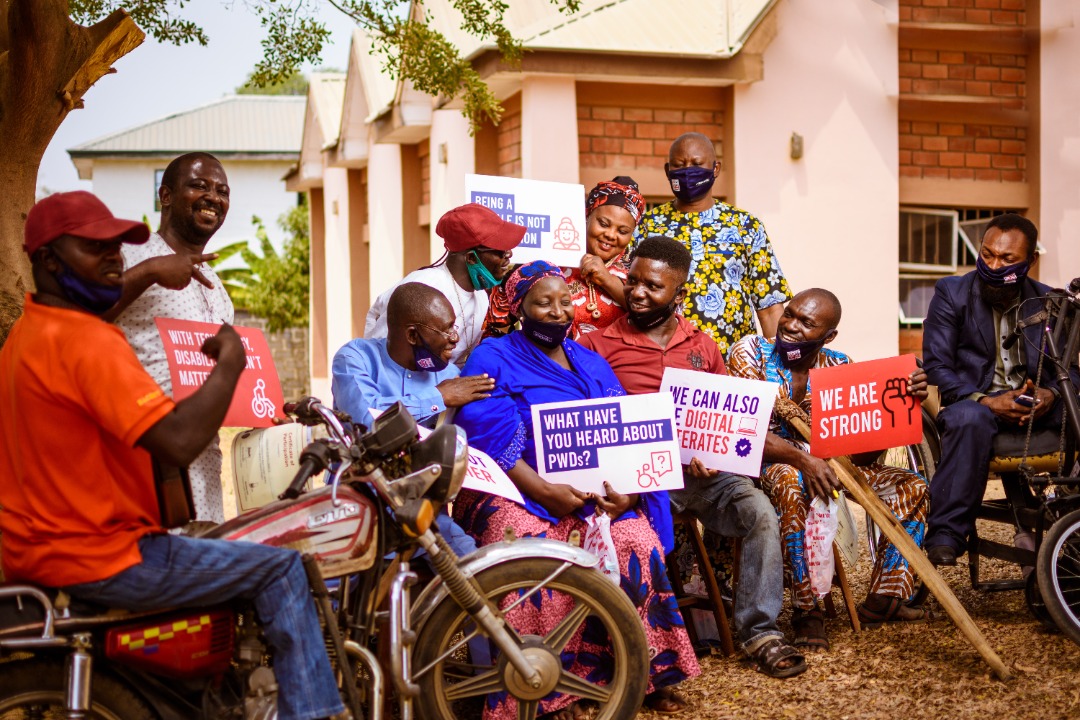 Back
Back
International Day of Persons with Disabilities 2021
| December 03, 2021

According to the World Health Organization (WHO), about 15 percent or over one billion of the world's population live with some form of disability. Going by this statistic, one can see that Persons with Disabilities (PWDs) constitute a significant percentage of the world's population. December 3rd is a day set aside annually to celebrate them and acknowledge them and their struggles. This year, during the annual celebration of PWDs, the 2021 theme is 'Fighting for rights in the post-COVID era.'
The effects of the COVID-19 pandemic are far-reaching. Lives were lost, people were ill, most of society was on lockdown, and the pandemic altered the normal way of doing things. Already, PWDs face marginalization, discrimination, vulnerability, and exploitation daily. During the COVID-19 pandemic, they had to combine their daily struggles with battling the virus. Statistics according to an article by Elsevier Public Health Emergency Collection titled Triple Jeopardy: Disabled People and the COVID-19 Pandemic, showed that PWDs were differentially affected by COVID-19 because of three factors: the increased risk of poor outcomes from the disease itself, reduced access to routine health care and rehabilitation, and the adverse social impacts of efforts to mitigate the pandemic.
This article also cited that the laws made during the pandemic were not PWDs inclusive. For instance, when the lockdown rules were enforced, there were instances where PWDs had to attend to medical needs but were restricted. Also, PWDs that were victims of domestic violence or sexual abuse were trapped in the exact geographical location with their abusers during the lockdown.
This year's International Day of Persons with Disabilities intends to spotlight and analyse the effects of COVID-19, especially on PWDs, and hold conversations around the world on how to address the issues, new possibilities, and the reality of a post-covid world.
Contrary to popular opinion, disabilities are beyond physical deformities. There are also disabilities known as invisible disabilities. Invisible disabilities, also known as Hidden Disabilities or Non-visible Disabilities (NVD), are disabilities that are not immediately noticeable either because they are mental or neurological or because they are not exactly obvious. They are typically chronic illnesses and conditions that affect the ability of people to carry out their tasks or participate in other activities.
Examples of invisible disabilities include autism spectrum disorder, depression, diabetes, and learning and thinking differences such as Attention Deficit Hyperactivity Disorder (ADHD) and dyslexia. Irrespective of their disabilities, PWDs are regular people with valid emotions and everyday lives and should be treated and respected. As a society, we must recognize that disability does not define people or make them less human. We must acknowledge that although PWDs are beyond their struggles, their struggles are real, and this acknowledgment should bring support
From basic things like opening doors for them or leading them to their destinations, there are various ways organizations or individuals can support PWDs, like donating to PWD-focused N.G.O.s and creating opportunities that are inclusive of PWDs. At Tech4Dev, we realize how quickly side-lined these people can be in various opportunities, and so in our various programs, we go out of our way to create a slot for them to fill. For instance, in the ongoing Basic Digital Literacy for Southern Nigeria training in Delta state, 30% of our beneficiaries are proposed to be PWDs and other vulnerable groups. In the first phase of the program implemented across 10 Northern states in Nigeria and funded by the Foreign Commonwealth Development Office (FCDO), about 300 of 1300+ beneficiaries across those states were PWDs. This program helped us to realise the importance of creating inclusive programs, especially where PWDs are concerned.
Other ways of supporting PWDs are respecting their boundaries, standing up for them against stigmatization, and discrimination, helping them with aids (e.g., learning aids, walking aids, hearing aids, etc.), being patient with them (e.g., people with learning or speaking disabilities etc.)
As we mark International Day of Persons with Disabilities, it is essential to be on the lookout for ways to improve the standard of living of PWDs because a better world for them is a better world for everyone.